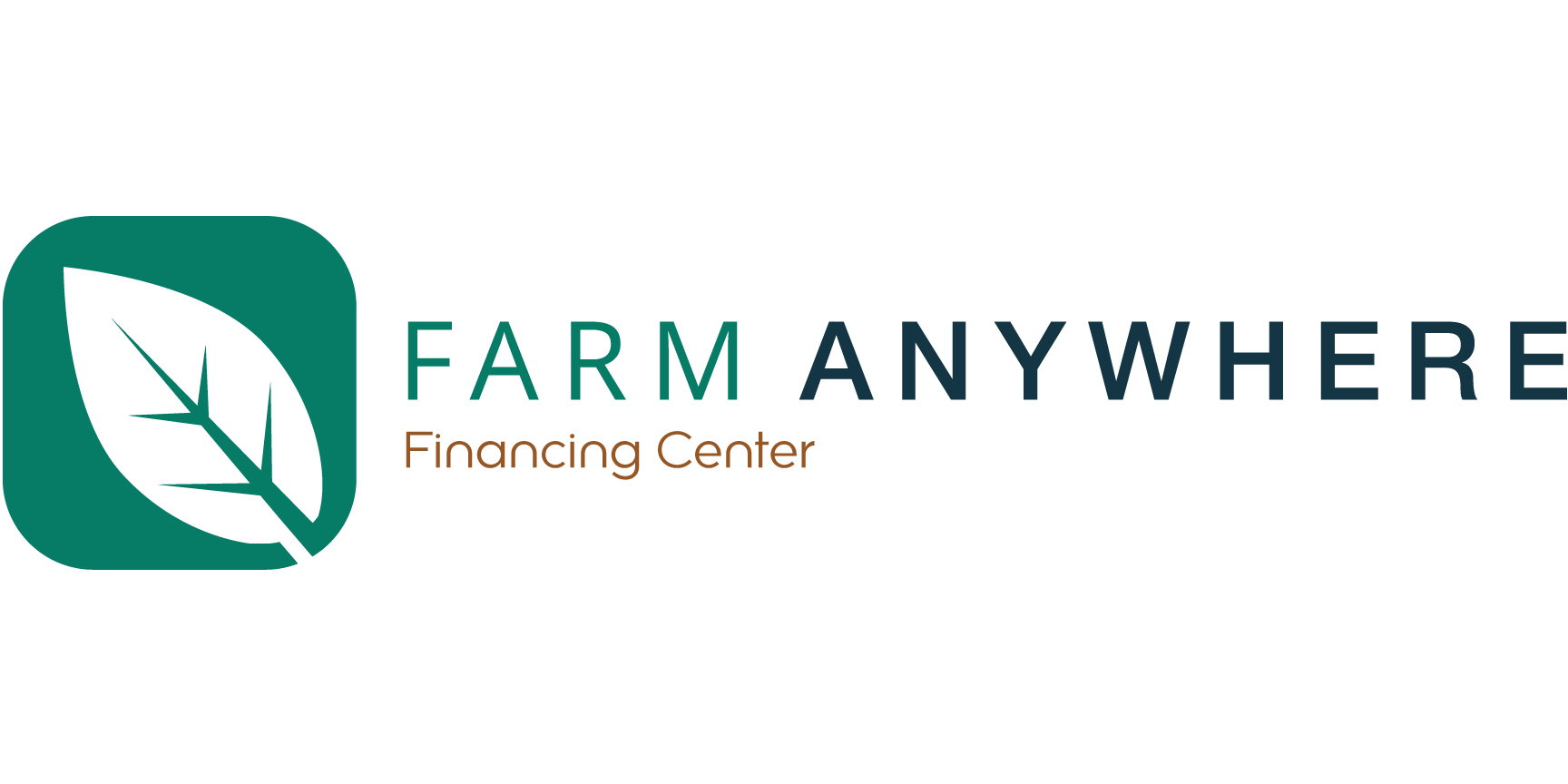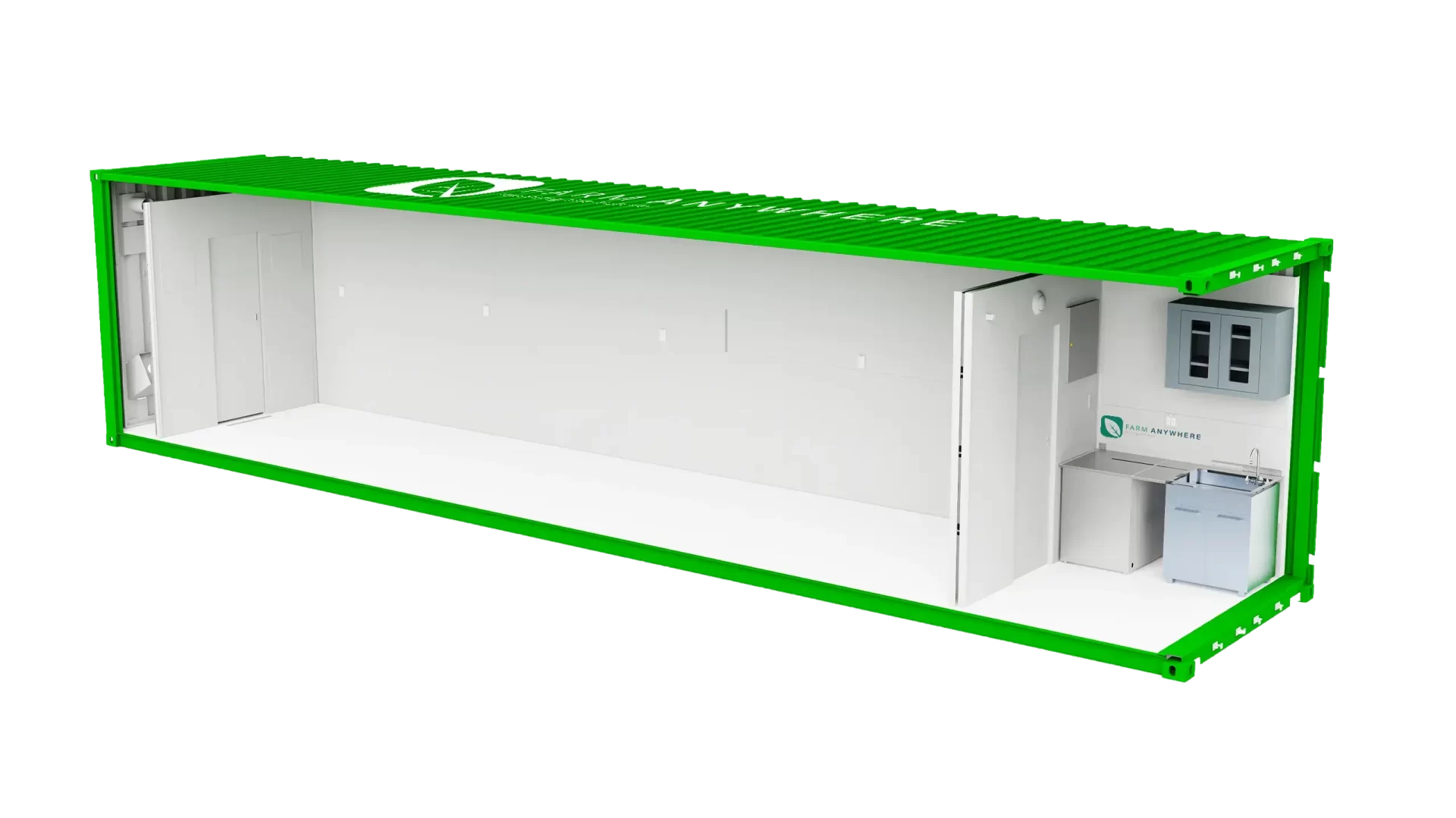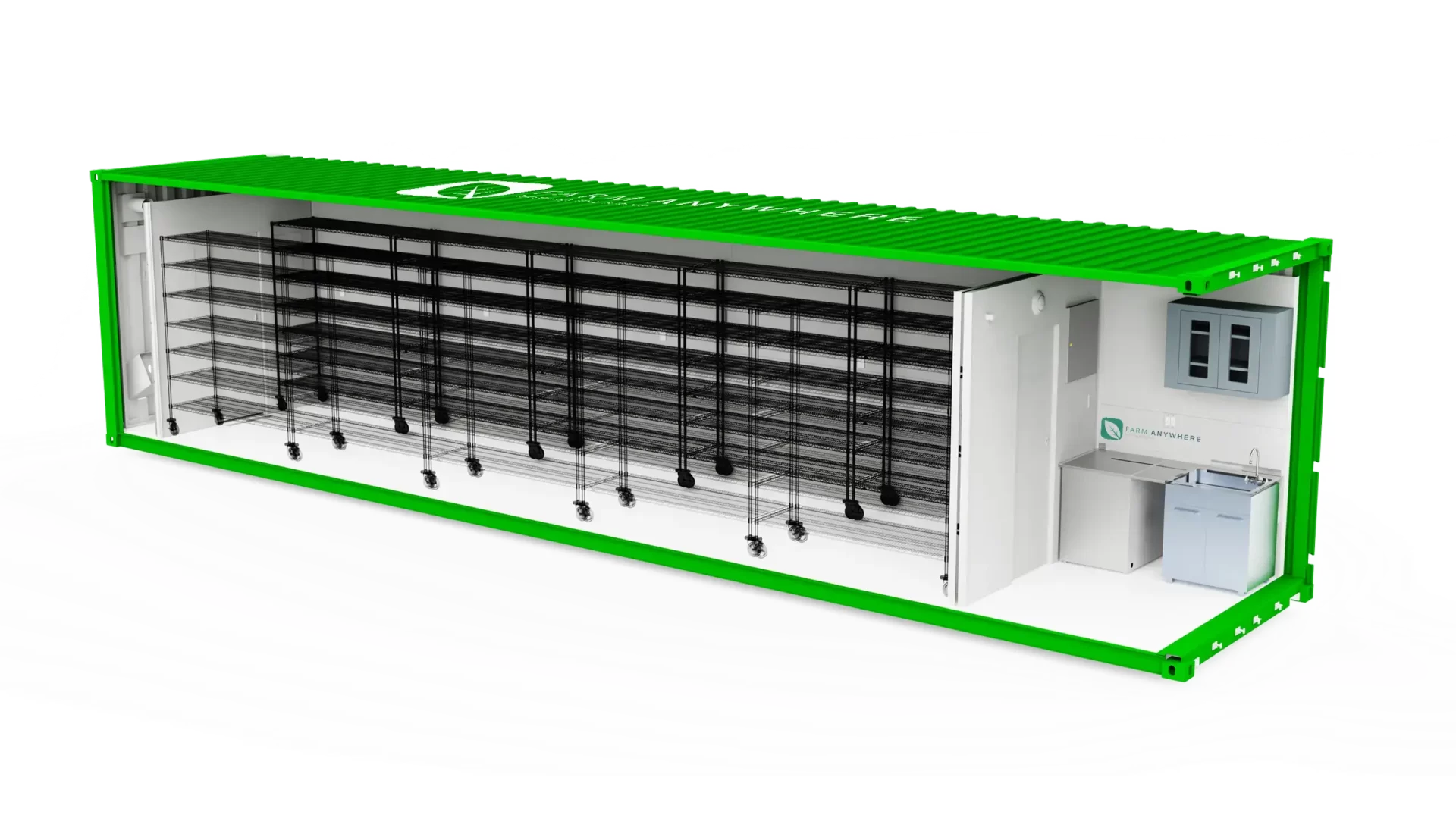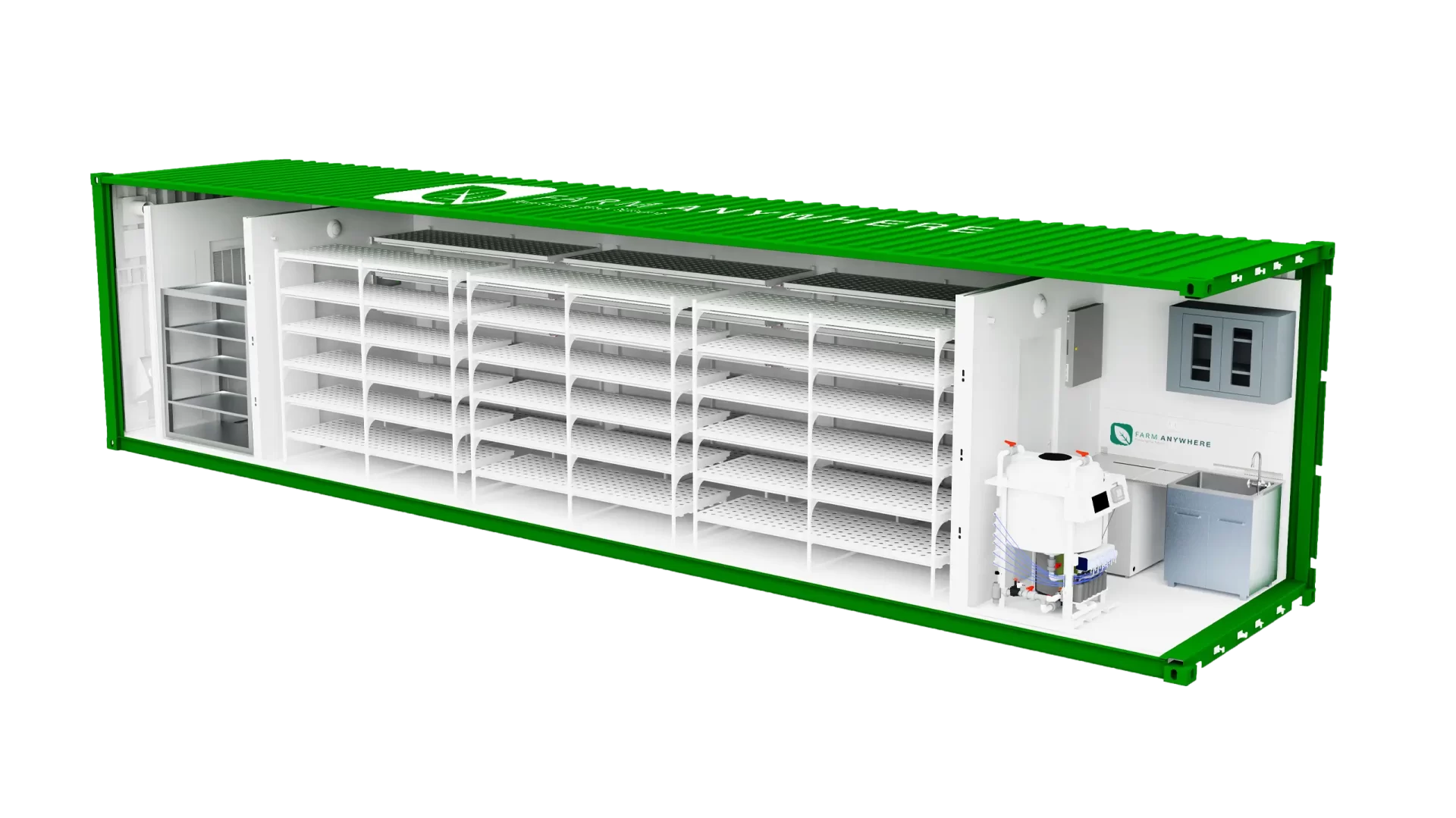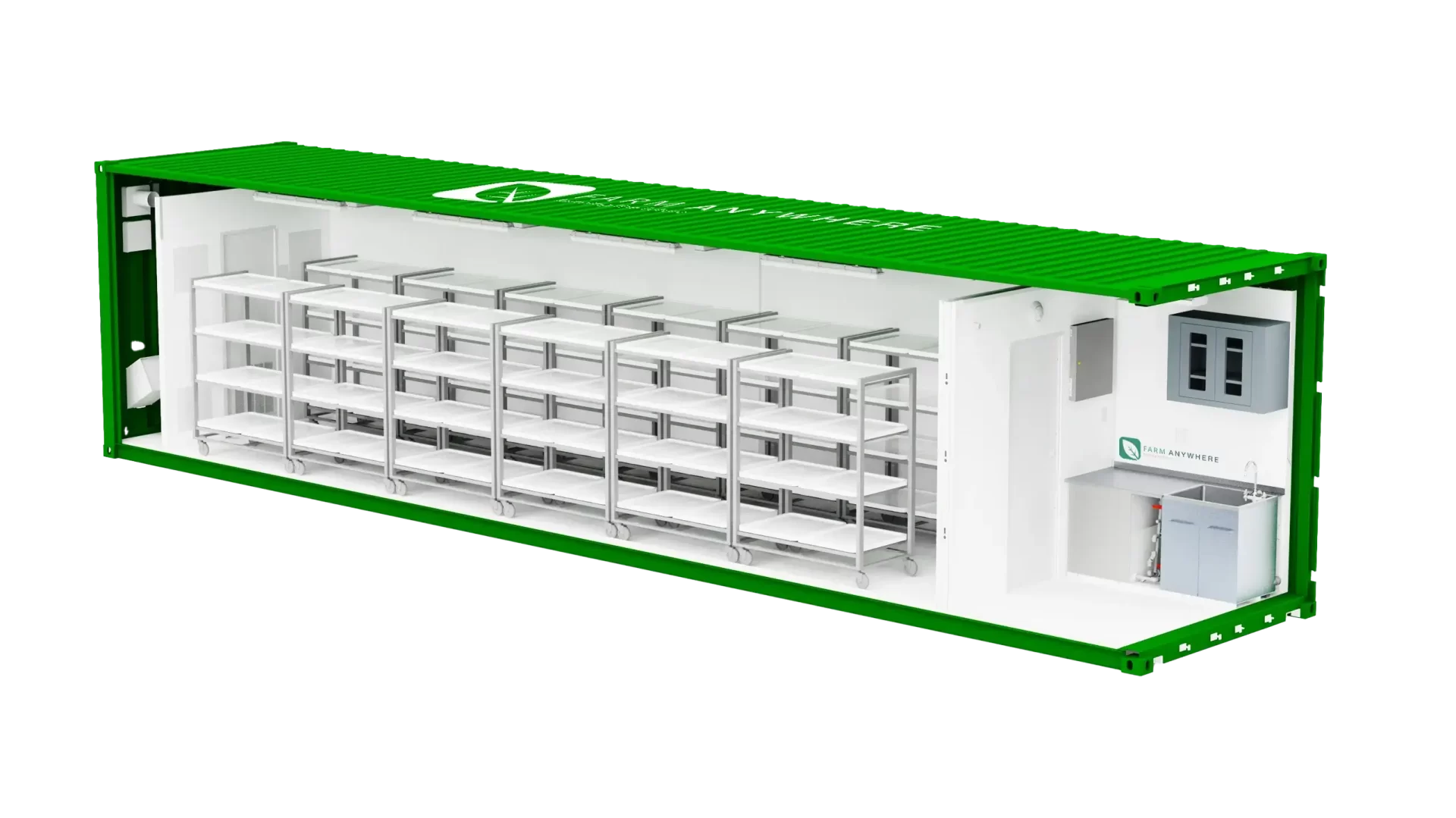Financing Container Farms
Don't Break The Bank
FarmAnywhere is making the purchase and operation of container farms easier with flexible financing*. Financing starts with an initial deposit to claim your farm and manageable monthly payments thereafter. This approach makes sustainable farming accessible and efficient, fostering agriculture’s growth by allowing for easy customization and operation. Customers are subjected to a third-party credit check, which does not affect their credit score.
*Exclusive to Canada and United States of America
How FarmAnywhere Financing Works
Place Your Order
Add to cart your desired container farms and farm add-ons*.
*If financing more than one container, add the corresponding number of add-ons for each container.
Connect and Plan
After paying the deposit, customers will be subjected to a third party credit check. Our team will be in contact every step of the process.
If clients no longer interested in financing, the deposit will be return.
Start Farming
Receive your farm in 4-6 weeks depending on location. FarmAnywhere will support farmers every step of way.
Monthly payment will start after receiving your farm.
— FAQ
New to Financing Container Farming?
Here's a list of frequently asked questions from customers.
At FarmAnywhere, we offer financing options for our range of container farms, exclusively for clients in North America. Get started by placing a deposit to claim your container farm—simply add your chosen farm and any desired add-ons to your cart. Our team will then assist you in setting up your ideal farm, followed by a convenient monthly payment plan. Customers will be subjected to a third party credit check, which will not impact their credit score.
Please note, the prices listed on our site apply to financed purchases only. If you're interested in buying a container farm outright, without financing, please contact us here.
Container farming, also known as vertical farming or indoor farming, is a method of growing crops in a controlled environment within shipping containers. These containers are often equipped with hydroponic or aeroponic systems, LED lights for photosynthesis, and climate control systems. The goal is to maximize the amount of crops that can be produced in a small space, regardless of external weather conditions.
Container farming offers several benefits over traditional farming. It allows for year-round crop production, independent of weather and season. It uses significantly less water and land compared to traditional farming, making it a more sustainable option. The controlled environment reduces the need for pesticides and herbicides, leading to cleaner, healthier produce. It also allows for farming in urban areas, reducing the distance food needs to travel to reach consumers, which can help reduce carbon emissions.
A wide variety of crops can be grown in a container farm, including leafy greens like lettuce, spinach, and kale, herbs like basil and mint, and other crops like strawberries and fodder. The specific crops that can be grown may depend on the specific setup of the container farm and the technology used.
See more crops here.
The cost of setting up a container farm can vary widely depending on the size of the farm, the technology used, and other factors. The cost could range from tens of thousands to hundreds of thousands of dollars. Ongoing costs include electricity, water, nutrients for the plants, and maintenance of the systems.
The climate in a container farm is controlled using a combination of heating, cooling, and ventilation systems, as well as LED lights that can be adjusted to provide the optimal light spectrum for plant growth. This allows for precise control over the temperature, humidity, and light levels, which can be adjusted to create the ideal conditions for each type of crop. This level of control can lead to faster growth rates and higher yields compared to traditional farming.
Container farming can be more sustainable than traditional farming in several ways. It uses less water, as the hydroponic or aeroponic systems recycle water, and it requires less land, as crops are grown vertically. It also reduces the need for pesticides and herbicides, which can have harmful environmental impacts. However, it does require electricity, which can contribute to carbon emissions if it's not sourced from renewable sources. Additionally, the production and disposal of the materials used in container farms, such as the containers themselves and the LED lights, can also have environmental impacts.
Learn more about sustainable practice here.
Best Sellers
Looking for more?
Vancouver, BC
Email us today for more info
